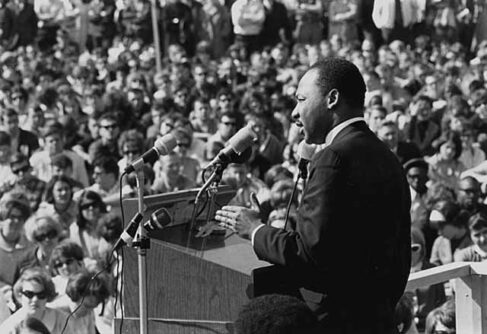This week’s announcement of the Nobel Prize in Economics to three American economists rounded this year’s Nobels, and the Nobel Prize recipients list once again highlights America’s intellectual preeminence, at least at the levels of elite scholarly achievement: the 2013 Nobel Prize in Chemistry was awarded to three foreign-born scientists now all with appointments at U.S. universities; the Nobel Prize in Medicine was awarded to three scientists at U.S. universities, two of these Americans by birth. Further, 17 of the 20 top-ranking research universities worldwide are in the United States. The United States produces—or attracts to its shores—the very top scholars.
This American scholarly preeminence may be seen as the triumph of Benjamin Franklin’s philanthropic project to make America the equal or superior of Europe as a hub of science and scholarship, a project described by Jonathan Lyons in his new book, The Society for Useful Knowledge.
Lyons recounts how Franklin’s first sojourn in London in his late teens introduced Franklin to the coffee houses where men congregated to debate politics, philosophy, and science. Upon his return to Philadelphia, Franklin, then only twenty-one, established the “Leather Apron Club” of a dozen young men who worked as artisans or craftsmen (and so wore leather aprons at their workshops). In the evenings, they gathered at a tavern for wide-ranging discussions about leading scientific and political topics of the day.
The Leather Apron Club did not take up merely theoretical questions but strove for “useful knowledge”: among its early outputs was a pamphlet on the advantages of paper currency. This pamphlet provided impetus to the movement in Pennsylvania to supplement gold and metal currency with printed currency. (Ever the entrepreneur, Franklin made this useful to his pocketbook by winning the contract to print currency from the Pennsylvania Assembly!)
Later and even more ambitiously, Franklin was a key figure in the establishment of the American Philosophical Society, which was modeled on the Royal Society of London. The American Philosophical Society grew, with Franklin’s encouragement, into a vibrant organization that brought together the leading Americans scholars and scientists and contributed to the establishment of a vibrant scientific community in the American colonies.
Indeed, of all of Franklin’s many philanthropic ventures, his sedulous efforts to establish learned societies, libraries, and schools shows his abiding concern to establish serious learning and study in his beloved America.
Lyons argues that that British and Continental scientists were dismissive of the early American scientific efforts, as though real science and learning could flourish only on European soil with its long-established universities and scholarly societies. (Patrick Allitt, in a review of Lyons’ book, argues that Lyons overstates the Europeans' contempt for American scientific work).
One aspect of Franklin’s efforts to encourage science and scholarship that one finds among some contemporary American philanthropists is Franklin’s convictions that scholarship has a home outside of universities, in learned societies of men who have other daytime occupations than scholarly work, and also that lengthy formal learning is not required for scholarly excellence (Franklin himself had only two years of formal education).
Again today, there are American philanthropists who, like Franklin, encourage serious learning outside of the college context, such as Peter Thiel, whose Thiel Fellowship program funds young people to do research outside of college, and James Cameron and Arianna Huffington, who, with others, have funded the X Prize Foundation, which offers awards for entrepreneurs who can achieve specified technological feats such as space travel.






